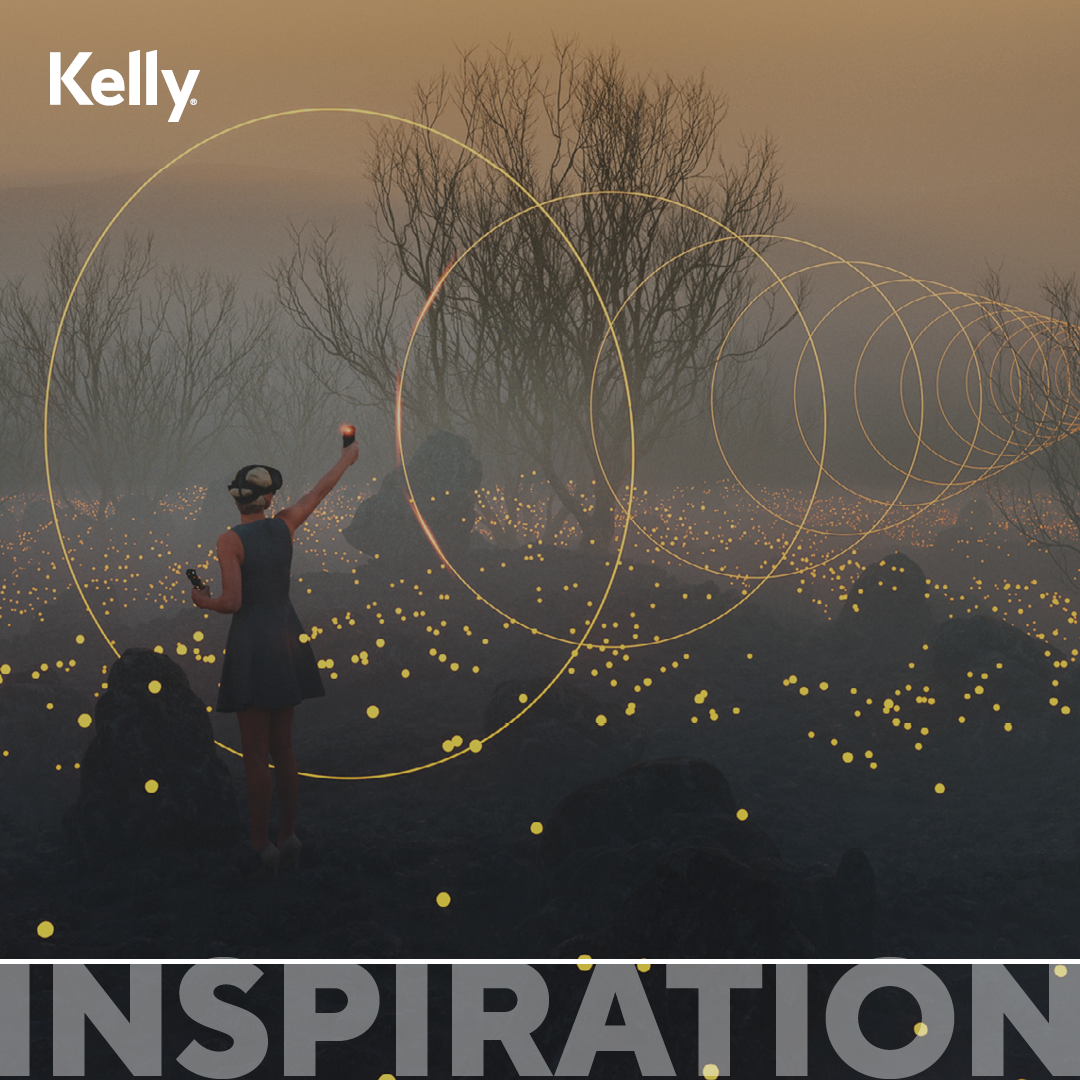Our blogs

14 Aug, 2023
Rephrasing the famous song, “Love is in the air”, let’s talk about change is in the air – and everywhere. We grow. We change. Look at your childhood photos. Watch your kid, your nephew, your niece. The change is there, and it’s incredible. Nature is constantly changing. We wait for summer as the time to enjoy outdoor activities and gardening, for a quick visit to the beach, or simply take time to relax and spend time with family, friends and loved ones. We wait for winter (even if we never see snow falling) to decorate the house for the holidays, pack presents for the people we love and unpack our own. The colour of the leaves changes, the weather shifts, and flowers blossom in their time – the landscape is constantly transforming. The world around us is changing. We travel to other countries and learn new things, cultures and languages. We take on new hobbies. We get new skills. After a couple of minor kitchen accidents (sometimes), we can cook delicious dishes and get compliments from family and friends. We transform our bodies at the gym or simply by creating the habit of walking every day. We meet new people, we sometimes fall in love, we build families, we have kids. And if you step back for a second, you realise you might have met your other half by pure accident. But you took a leap of faith into the unknown. We embrace many types of unknown change, except for the one that can change how we live five days a week – to change jobs. “I am too old/too young to change”, “I’m used to this environment; It’s my comfort zone”, “Well, I don’t get any promotion, and what I do doesn’t change the world, but it’s stable”, “I am afraid to ask for more interesting projects. What if my manager fires me?”. We often don’t want to change because that step requires a vision, courage, external support, and a leap of faith into the unknown. Scary? Yes. But also promising. A step into the unknown? Yes. But it can open a new door. Do your inner values marry what you do? Yes, it is essential. There is nothing terrible about staying in your comfort zone. At some stage of your career, staying put can be an excellent decision. But if you feel that you need a change – talk to Kelly. We don’t mind going the extra mile and support your wish to embrace the change. The one which will give meaning to what you do, feel proud, motivated and fulfilled. Ready for changing? We’ll make sure your talent can truly shine.

10 Aug, 2023
You’ve seen these guys before when a circus came to your city or maybe on TV. They walk on a wire at an impressive height, sometimes without insurance, sometimes with a long stick that probes the void right and left. They walk slowly, trying the wire with their toes first, making small steps, their eyes fixed on the small platform where they plan to land soon. They never watch down. They don’t listen to an audience that applauses or gasps in awe. They are concentrated on keeping their balance. To keep balance. Let’s come down from the wire above the arena or stage. Let’s look closer at balance, where it has its roots and the secrets of keeping it. Is it an art? Or is it a skill? Can you learn to keep balance? Or is it an innate skill that only gymnasts, figure skaters, circus artists and ballet dancers are born with? Want to know the secrets of a ballerina that must perform 32 fouettes, a complex ballet movement that requires turning 360 degrees at a high-speed standing on the point of a ballet shoe? First, keeping balance is a skill people must learn for years. In ballet, sport, circus, real life, and… work life. A ballerina is taught to pick one point and to fix her eyes on it when she makes her 32 fouettes, a complex ballet movement that requires turning 360 degrees at high-speed standing on the point of a ballet shoe. She focuses on one thing that keeps her upright. She doesn’t look anywhere else. Gymnasts in some disciplines are constantly trained to feel the bar under their feet. They are prepared to land precisely on the bar after they jump, and the incredible contortions we admire in competitions. But let’s come back to the circus artists we have begun with. Often, they have a long stick in their hands to keep their balance. Is their secret hidden in the stick? And what is the secret? You don’t need to be a ballet dancer, a gymnast, or a circus artist to get the idea of balance. Here are your first two steps in your balance training: 1. Keep your main priorities in mind. And have a clear idea about what is very important for you and where you are ready to compromise. But don’t listen to external opinions that don’t align with your ideals. Forget about the audience’s applause – focus on you. 2. Use some help to stay upright and get to your goals. Imagine your life split on two ends of the helping stick, your job is on one end, and your private life is on another. How comfortable do you feel at your height now with the load on both ends? You need support. We at Kelly pay a lot of attention to balance. The balance between people’s private lives and their jobs. The balance between feeling appreciated and professional goals or between achieving extraordinary results and being inspired. Talk to Kelly today. We are not ballet coaches or sports trainers, but we know much about how important work/life balance is in our lives.

03 Aug, 2023
We often associate certain qualities with individuals who seem to possess a natural talent for creativity. We convince ourselves that painting, singing, or dancing are pursuits reserved for these "real" artists while we remain mere spectators. Creativity? Inspiration? No, it's not about me.

06 Feb, 2023
First of all – everybody makes mistakes. Humans because of their nature, machines because of their non-nature. The only way to not make any mistakes? To never do anything. To stay completely still. But then, you can’t learn anything or make progress, either. A strange phenomenon over the past few years is that of ‘F*ck-up Nights’ hosted by senior people who share their experience about the mistakes they have made on their journey to the top. The logic is simple: learning from someone else's mistakes allows you not to repeat them yourself. But making your own mistakes can open a totally new chapter in your career - especially when people around you (including your boss) are able to look at it through a lens of learning and positivity. Mistakes can open the door to innovation, insight and breakthrough results. Sometimes you win, sometimes you learn. Critical feedback is the best feedback It’s nice to hear praise, but as the best customer support people will tell you: you can’t learn and improve on positive feedback alone. Many companies reward constructive (or ‘negative’, provided it’s helpful) feedback to encourage them to share the things that could be improved, however large or small. This type of feedback gives you direction for change, inspires creative thinking and can even give rise to new directions for a business. Even the most successful companies have disappointed customers and made poor strategic choices. But they are successful because they took these opportunities to learn and made something of them. Fail fast and learn quick Of course, young companies, small businesses and start-ups have more freedom to try out different approaches – and as a result, make mistakes and failures faster and learn from them faster as well. The new format you’ve designed for social media doesn’t work? Change it! People better react to only two colours in your bag collections? Limit the colour range! We at Kelly have recently hosted a great career event – the first of its kind for the industry. We had great plans, big ambitions. No, we didn’t fail (quite the opposite!) but many things did not go as planned and we had to learn on the fly from the situations. Now, we are quite confident that next year's event will bring us even better results. ‘Try-learn-move forward’ in action! Fear of punishment – is it a trap? How many great inventions have not happened because of the fear of punishment? We can only imagine. When people make a mistake and try to hide it, it often leads to worse consequences further down the line. And think about what it does to your motivation! If you are told by your boss that no mistake will go unpunished, work suddenly becomes more stressful than ever. Are your leaders open to mistakes? Would your boss talk openly about lessons other employees can learn from your mistake, rather than making you feel bad or firing you? If yes, you’re in (a) good company! Why great people talk openly about their mistakes Mistakes teach valuable lessons, especially in the business world, and it takes embracing mistakes as learning opportunities to grow and see future success. All great leaders - modern and historical - speak about their mistakes in books, articles and interviews. Great sportspeople, too; every mistake they make teaches them how to improve by 1%. All of their mistakes combined are what makes them the best at what they do. And just like in sports, at work you cannot become a better version of yourself with falls, failures and mistakes teaching you how to become a little better each time.

By Kelly
•
02 Dec, 2022
That feeling that you’ve done everything you can in your current role and it’s time for something new? It’s not unusual to get the sudden urge to look outside your current company and role, but for job hoppers, this itch happens quickly and changes are fast and often. In today’s blog, we explore job hopping and what it means for employers and workers.

By Kelly
•
23 Nov, 2022
The Life Sciences industry has seen record levels of investment in recent years, largely due to the pandemic. More money means more new products, all of which require regulatory approval. The regulations themselves have had to evolve rapidly, too, creating a regulatory environment that is both thriving… and suffering from a talent shortage. Here’s how you can stay one step ahead of competitors in the race to hire top talent.

By Kelly LIfe Sciences
•
18 Oct, 2022
The talent landscape is pretty sparse in biomanufacturing at the moment, albeit for all the right reasons. Interest, investment and productivity are at an all-time high, which means demand has grown rapidly. This is partly down to the pandemic highlighting the importance of getting new products to market (quickly), which has led to important regulatory changes, as well as huge injections of funding. But new technologies also play a big part in this advancement.






